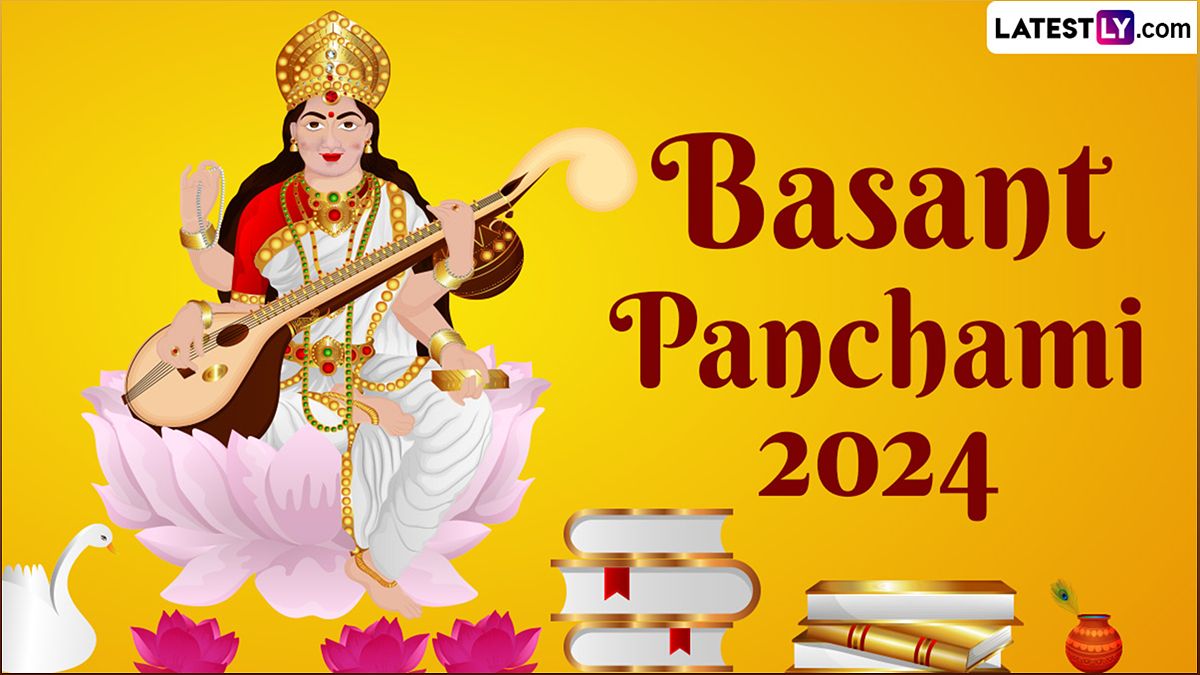Learn about the vibrant Hindu festival of Basant Panchami, dedicated to the worship of Goddess Saraswati and the onset of spring. Discover the customs, rituals, and cultural significance of this joyous celebration.
Basant Panchami: Celebrating the Arrival of Spring and Goddess Saraswati
Basant Panchami, also known as Saraswati Puja, is a vibrant and culturally significant Hindu festival celebrated annually in India. Falling on the fifth day of the Magha month, Basant Panchami marks the onset of spring and is dedicated to the worship of Goddess Saraswati, the embodiment of knowledge, wisdom, and the arts.
This year, Saraswati Puja 2024 (Basant Panchami 2024) falls on February 14, Wednesday.
The festival holds a special place in the hearts of devotees as it symbolizes the triumph of good over evil and the arrival of the season of renewal. The word "Basant" translates to spring, and "Panchami" refers to the fifth day. It is believed that on this day, Goddess Saraswati, adorned in white, rides a swan and bestows her blessings upon humanity.
The Customs and Significance of Basant Panchami
Devotees wake up before dawn to participate in traditional ceremonies. Homes and temples are adorned with vibrant yellow flowers and decorations, symbolizing the blooming mustard fields that blanket the landscape during this time of year. Yellow is considered an auspicious color, representing the vibrancy and energy associated with the festival.
Basant Panchami is not only a religious festival but also a celebration of cultural activities. People indulge in singing, dancing, and various artistic performances to welcome the season of spring. Kite flying competitions are a popular feature of the day, with the sky adorned with colorful kites representing the vibrant spirit of the festival.
Wearing yellow attire is customary on Basant Panchami. Families and individuals dress in yellow clothes as a symbol of joy and prosperity The festival is incomplete without indulging in a feast of yellow-themed dishes. Sweets made of saffron, turmeric, and gram flour are prepared, adding a delectable touch to the celebrations.
Basant Panchami Dos and Don'ts
Basant Panchami Dos:
- Begin your day early, preferably during Brahma muhurta (3:30 to 5:30 AM).
- Adorn yourself in yellow attire following your morning rituals and baths.
- Pay homage to the sun god by offering water.
- Set up a sacred space with a chowki adorned with new yellow cloth and flowers for the goddess.
- Engage in meditation, expressing gratitude to the goddess for the blessings in your life, accompanied by the Saraswati mantra.
- Present offerings of yellow rice, sweets, and fruits.
- Extend support to the less fortunate by donating books and items related to music, art, or education to children in need.
- If feasible, include mustard flowers in your offerings.
- Embrace new beginnings during this auspicious time.
- Share the festive spirit by offering sweets and rice to the underprivileged.
Basant Panchami Don'ts:
- Refrain from the consumption of alcohol, tobacco, or any addictive substances.
- Avoid non-vegetarian food during this sacred period.
- If possible, steer clear of onions and garlic in your meals.
- Ensure you do not eat without taking a bath.
- Uphold environmental consciousness by refraining from cutting trees and plants.
These guidelines for Basant Panchami 2023 are designed to enhance the spiritual experience and promote a sense of harmony, gratitude, and goodwill during this joyous festival.
Basant Panchami: A Festival of Cultural Richness and Diversity
Basant Panchami is a festival that transcends religious boundaries and is celebrated with equal fervor across diverse communities in India. It encapsulates the spirit of renewal, knowledge, and the joyous arrival of spring.
As families come together, students seek blessings, and the air is filled with the sound of kites fluttering in the sky, Basant Panchami exemplifies the cultural richness and diversity that define the tapestry of India.

